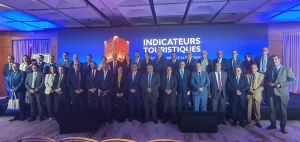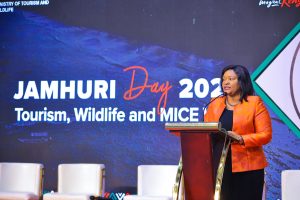In a recent address to the World Tourism Organization (UNWTO) 66th Commission for Africa Meeting in Mauritius, Victoria Kwakwa, the World Bank Regional Vice President for Eastern and Southern Africa, underscored the multifaceted challenges and opportunities faced by the tourism sector in the wake of the COVID-19 pandemic. Kwakwa’s speech emphasised the importance of sustainable and inclusive growth in the industry, while acknowledging the significant hurdles that countries have encountered.
“I don’t have to remind you of the significant challenges countries have faced since the outbreak of the COVID-19 pandemic,” Kwakwa remarked. “These include global shifts in demand, a rise in fragility, social unrest and conflicts, and a growing urgency to address climate risk and growing inequality.” She highlighted the sector’s struggles with access to energy and digital connectivity, which continue to hinder progress.
Drawing attention to the World Bank’s commitment to addressing these challenges, Kwakwa shared that the number of World Bank tourism projects in Africa has nearly doubled since 2019. With 20 active lending projects across the region in 14 countries, the World Bank has invested approximately $1.55 billion in Africa. These projects, she explained, are designed to align with green and Paris Agreement principles, focusing on inclusivity, community benefits and conservation.
Kwakwa further elaborated on the intricate connection between poverty and climate, stating, “There is now widespread agreement that poverty and climate are inseparably linked.” She shared the World Bank’s updated vision of eradicating poverty within the framework of a sustainable planet.
The speech highlighted the tourism sector’s potential as a driver of job creation, particularly for women, youth, and rural communities. “The tourism sector provides significant opportunities to advance this vision through the creation of jobs,” Kwakwa noted. She emphasised that tourism’s contributions extend beyond mere economic gains, encompassing foreign exchange earnings, government revenues, and infrastructure development.
“Tourism can also attract new customers to local markets, which trigger broad spillovers to other sectors such as manufacturing, agriculture, and the protection of natural and cultural heritage,” Kwakwa explained.
In the context of the pandemic, Kwakwa recognised the increased significance of domestic and regional tourism in boosting demand and reducing carbon emissions from long-haul visitors. However, she cautioned that not all forms of tourism are conducive to a sustainable future.
Acknowledging the need for strategic planning, Kwakwa stated, “Tourism must be carefully planned and managed to avoid harming the very assets that make our countries attractive for visitors.”
Reflecting on the post-pandemic landscape, Kwakwa highlighted the World Bank’s commitment to charting a sustainable path for the tourism industry. She revealed a substantial increase in World Bank tourism projects in Africa, emphasising green initiatives, inclusivity and community benefits.
While acknowledging the strides made, Kwakwa acknowledged the tourism sector’s ongoing struggle with carbon emissions, resource consumption and waste production. She called for collaboration between the public and private sectors to unlock further opportunities for sustainable growth.
Closing her address, Kwakwa commended the collaborative efforts emerging from the pandemic, with various stakeholders uniting to share expertise and resources. She highlighted successful initiatives in Sierra Leone, Sao Tome and Principe, South Africa, Uganda and Zambia, demonstrating the tangible impact of collective action.
In her concluding remarks, Kwakwa urged the audience to view tourism not only as a driver of economic growth but also as a catalyst for climate action and a means to enhance the planet’s livability. “Let us embark on this transformative journey together,” she admonished.
This article was first published in the October 2023 Issue of VoyagesAfriq Travel Magazine







